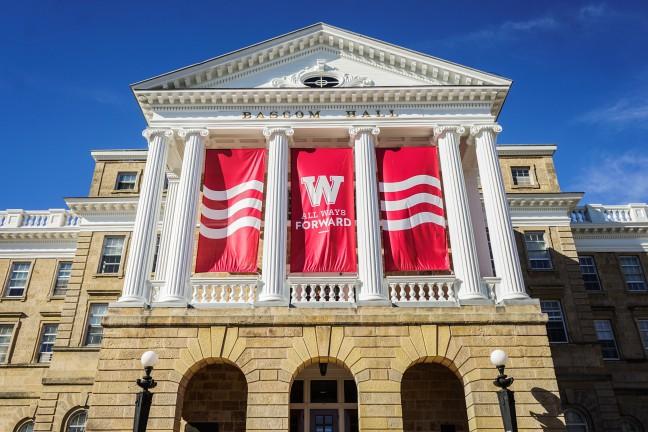University of Wisconsin and ExxonMobil have partnered up to research the fundamental chemistry used to turn organic matter into fuel.
The two-year agreement was announced in December, and ExxonMobil and UW researchers hope to study and understand the basic fundamental chemistry behind converting biomass into diesel and jet fuel.
Biomass, an organic matter, often comes from plant-based material. This material then undergoes a chemical transformation that results in fuel, according to a statement from the Biomass Energy Centre.
Understanding the chemistry behind this basic transformation process will allow researchers to then understand the different pathways to how this conversion works, George Huber, chemistry and biological engineering professor, explained.
Huber and fellow chemical and biological engineering professor James Dumesic are working on the research at UW.
The goal is for researchers to improve the technology behind the conversion process, making the new product more efficient and economically competitive in comparison to typical diesel fuel made from petroleum, he said.
“We know it’s possible to make diesel fuel from biomass, but we just can’t make it,” Huber said. “We need to do it in an efficient way where it’s economically competitive with diesel fuel from petroleum.”
From an environmental perspective, the goal is to create a fuel that doesn’t give off greenhouse gases, Huber said. Economically speaking, it would help the production of fuels in the U.S. rather than production in other countries, which could help spur the economy.
ExxonMobil has a history of research effort and has partnered with UW in the past. This, however, is the first time ExxonMobil has invested in biomass conversion with UW, Huber said.
“The big thing about the agreement is that it provides the funds and pays the graduate students that are a part of the research behind the project,” he said.
Mrunmayi Kumbhalkar is a fourth-year graduate student in the Dumesic Research Group at UW.
Having received her bachelor’s degree in engineering and chemical engineering from Birla Institute of Technology & Science in Pilani, India, Kumbhalkar is now working with both Huber and Dumesic on the ExxonMobil project.
Kumbhalkar said both institutes are well-known in the field of biomass conversion.
Kumbhalkar’s research for the project will focus on the reaction pathways going from biomass to diesel fuel.
“We hope to maximize the yield of diesel from biomass by developing new catalyst systems and investigating different reaction pathways,” Kumbhalkar said.
ExxonMobil is a global leader in research about biofuels, Christian Flathman, ExxonMobil spokesperson said. This investment is part of ExxonMobil’s partnership with the best and brightest universities to research and discover the next generation of energy solutions, Flathman said.
ExxonMobil’s agreement with UW is one way the company is continuing to identify the technologies that will help power the fuels of the future, Flathman said.
“Our goal is to find solutions to meet global energy demands, and I think this agreement is a great example of how we can work with universities on early stage research and individuals,” Flathman said.
ExxonMobil has made similar agreements with other universities like Iowa State University, Michigan State University and Northwestern University, according to a UW statement.
Flathman said individuals like Huber and students have the opportunity to conduct long-term fundamental research that will be important in understanding the future of sustainable fuel.
From an environmental point of view, Huber said people would like to drive around cars, fly airplanes and use heavy machinery that don’t give off a lot of greenhouse gases. The research will also help improve technology, which will potentially spur the U.S. economy by putting biomass-produced fuel on a competitive scale with petroleum-produced fuel, he said.
“There are a lot of things you can do with renewable energy, but it has to make economic sense,” Huber said.
















